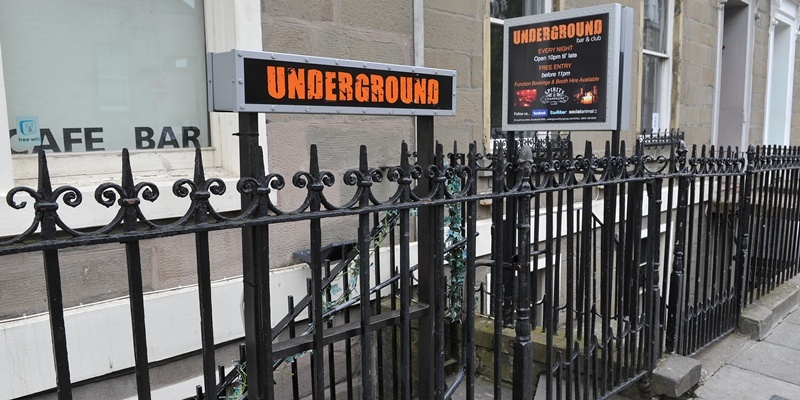The owners of a Dundee nightclub which has started fingerprinting customers have pledged not to share the information they hold with any third parties other than the police.
G1 Group PLC, which runs The Underground on South Tay Street, installed the scanners in venues throughout the country after a successful trial at a nightclub in Glasgow.
The first time patrons visit the club they have to provide identification to prove they are old enough to enter the nightclub. Their fingerprints are then taken and an up-to-date photo taken by staff.
This means that the next time they decide to visit the club they can gain access simply by having their fingerprint scanned. This then allows the club to check the age of the customer with their own records, which are stored on computer.
The scanner also recognises foreign passports and driving licences, making it easier for tourists to gain entry to nightclubs.
Although G1 Group claims the new system makes its nightclubs safer for customers as it is easier to identify troublemakers should they attempt to return to the club at a later date, civil liberties campaigners fear the information held on the club’s database could be shared with other organisations without permission.
Guy Herbert, chairman of campaign group NO2ID, described the collection of information about customers as ”intrusive”.
A spokeswoman for G1 Group said information would not be shared with any other organisation unless a criminal incident had occurred, in which case data would be given to the police.
She said: ”G1 Group PLC have introduced Scannet ID Scan across our late-night venues after a successful trial period at our flagship venue Corinthian Club in Glasgow.
”Scannet ID Scan is used to verify that identification produced, as part of our adherence to Challenge 25 policy, is real and has not been tampered with in any way.
”It also allows us to assign a fingerprint of the person to the ID meaning we can recognise the person on their next visit, and means we can photograph the person as they currently appear rather than a passport or driving licence that may be a few years old.
”Additionally, the system recognises most international passports and driving licenses, meaning we can accept overseas visitors into our venues, again adhering to the Challenge 25 policy.”
She added: ”The information is encrypted and stored securely at the premises and is not shared with any third parties. The only exception would be the police on the very few occasions that an incident occurs.
”Scannet ID Scan System helps ensure that all G1 venues are safe for our customers, and allows us to go the extra mile to make sure we are preventing under-age drinking and the use of false ID.”
News of the system sparked plenty of debate when we reported the story last week.
One opponent of the move posted: “I have been to Underground most weekends with a group of friends. We won’t be back though. So that’s easily a few hundred quid a month that you have lost. I assume most people that care about their data will do the same.”
But the system also had its supporters, with one poster saying: “Fantastic idea. Stops those not of legal age entry and those who have caused trouble. More clubs and pubs need this and as someone who has been on the receiving end of violence in a venue while working this will protect staff and the general public because the culprits will be known in the future.”
